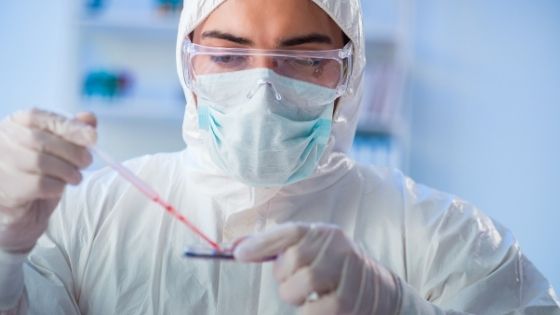A blood test is a pivotal part of routine health checkups and preventive healthcare. Your doctor recommends a few blood tests before or after the physical examination. The health expert can suggest it to you to evaluate particular health conditions. Before you go to a blood test lab in Greater Noida or your locality, you should know the associated things. Here are some valuable things you should know about blood tests:


1. What do blood tests do?
Blood tests are common tests done at a pathology lab. Apart from being a part of regular health checkups, a blood test:
- Examines the working conditions of your organs such as kidney, liver, thyroid, and heart
- Assist to diagnose clotting or bleeding disorders
- Help to know whether your immune system is strong enough to fight against infections or not
- Monitor a severe health condition or diseases like high cholesterol or diabetes
- Know whether treatment is effective for a certain disease or not
- Help diagnose particular health conditions or diseases
2. The type of the blood test you need to have
You should be aware of the blood test you are going to take. Usually, blood tests are of several different types. Here are some of them for your knowledge:
- CBC (Complete blood count) – It is often a part of a regular health checkup package. With it, your doctor has an idea about the measurement of red & white blood cells, hemoglobin, and platelets.
- Blood enzyme test – Enzymes present in your blood regulate chemical reactions in your body. These tests are of several different types such as troponin and creatine kinase tests. They help to know the damage to heart muscles and find if you have had heart attacks.
- Blood clotting test – It helps you detect the root cause of blood clotting or bleeding.
- Basic metabolic panel – As a group of tests, it measures the presence of particular chemicals in your blood such as calcium, electrolytes, and glucose.
- Blood test for heart problems – These tests consist of triglyceride tests and cholesterol tests.
3. Ways of taking a blood samples
At a pathology lab in your locality, experts follow a few ways to draw blood from your body and collect it into a container. The ways they apply are as follows:
- Venipuncture – In this method, a lab technician injects a needle attached to a syringe into a vein in one of your arms to take out the blood. After that, the expert transfers the taken blood into a container. You have a feel of a little sting when the needle goes inside your arm vein.
- A finger prick test – In this way, the expert makes a prick on the tip of your index finger to take out a small amount of the blood.
- Arterial blood test – Your doctor recommends this test to know the oxygen level in your body. In this test, the expert takes blood from your arteries, as oxygen levels are higher here in comparison with other body parts/organs.
- A heel stick test- Healthcare professionals do such tests on newborns. Before this, child experts can ask you to clean the feet of your baby.
4. Diet
A few types of blood tests require you to have a proper diet follow-up, especially 1-2 days before the scheduled test date. Some of you need to take fast while some need to take specific beverages (alcoholic/non-alcoholic) or food items. Any change in your diet has a close association with the blood test type you are going to have.
5. Medications
You don’t need a prescription for medications before the test if it is a part of your regular health checkup. However, your healthcare professionals may request you discontinue some medicines/drugs for a few tests before a few days of the sample collection. You should talk to your doctor or the lab technician in advance.
6. Normal and abnormal measurements
Usually, the reports on your blood tests, particularly for the number of specific substances, should be in the normal range. There are changes in your body functions if the count for specific substances is higher or lower in comparison with the normal range. You should have an idea about the normal and abnormal ranges. Keep in mind normal ranges in a male and a female are different.
7. Pregnancy
During your interaction, you should disclose your pregnancy to your doctor. It is crucial for you, as numerous hormonal changes take place in your body. And these changes can alter your blood test reports. Be honest with yourself and your doctor to get accurate reports for your blood tests.
8. Yours and your family’s health history
Lab technicians study the collected blood samples by keeping some particular points in mind. Your family health history is one of those certain points. Therefore, you should have a sound knowledge of your family health history and must disclose it to your doctor.
9. Number of the required samples
In some cases, lab technicians need more than one sample for a few blood tests. The number of the required samples depends on the type of blood test you are going to have. For better cooperation, you should know the sample number and be prepared for the same.
10. Precautions
Some of you may have instant reactions on your skin in the area used for blood drawing. You may need to take precautionary measures just after having the blood test. For example, you may have swelling or skin irritations in the affected area. You need to be very careful and consult your doctor to take care of the same. Applying an ice pack can help you heal the sensation or swelling.
Conclusion
You should know each point/thing associated with the blood test. Your awareness and knowledge will help you be ready for it and facilitate lab technicians in producing better and more accurate reports. And you will have no or low issues in your treatment procedure.
























